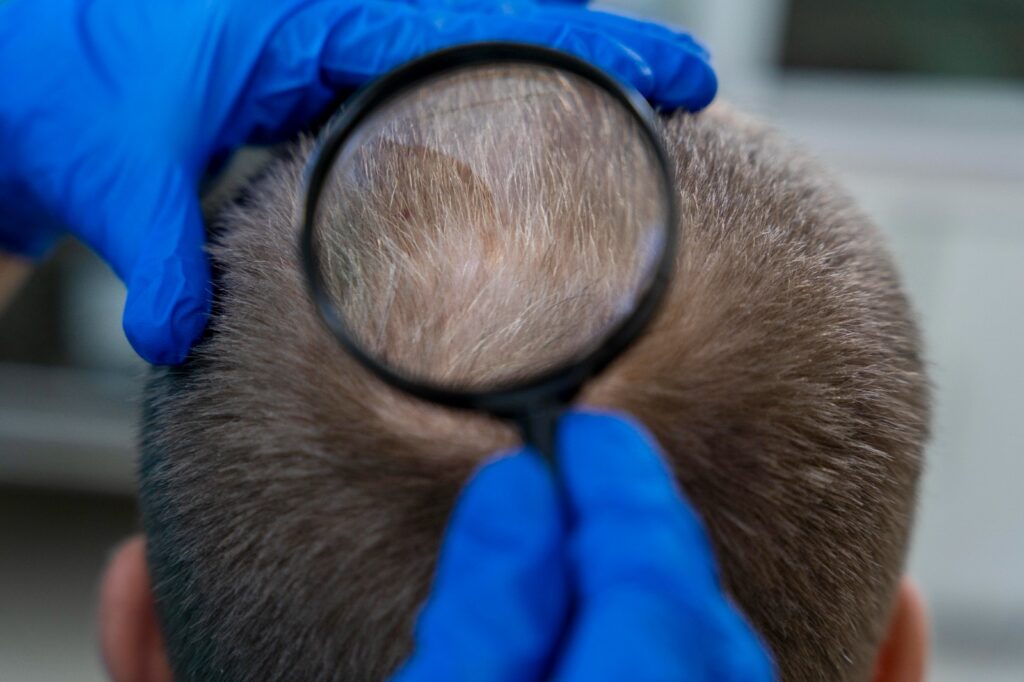- drambalkar@yahoo.co.in
- Mon - Sunday 10:00 AM - 02:00 PM
What Is Scalp Psoriasis?
Scalp psoriasis is a chronic skin condition characterized by the development of red, scaly, and often itchy patches on the scalp. It is a subtype of psoriasis, a common autoimmune disorder that affects the skin. Psoriasis occurs when the immune system mistakenly targets healthy skin cells, causing them to grow and reproduce at an accelerated rate. This rapid cell turnover leads to the formation of thick, scaly plaques on the skin’s surface.
Specifically, scalp psoriasis affects the scalp, but it can also extend to the forehead, neck, and behind the ears. The severity of scalp psoriasis can vary from person to person, and in some cases, it can be mild with only a few scattered patches, while in others, it can be more severe and cover a larger area of the scalp.

Common symptoms of scalp psoriasis include:
- Red or pink patches of skin covered with silvery-white scales.
- Itching or burning sensations on the scalp.
- Dryness and flakiness, which can resemble dandruff.
- Soreness or tenderness in the affected areas.
- Hair loss in severe cases, although the hair usually grows back once the condition is managed.
Managing scalp psoriasis typically involves a combination of treatments, including topical medications, shampoos, and sometimes oral or injected medications for more severe cases. It’s essential to work with a Ayurvedic Skin Doctor or dermatologist to develop a personalized treatment plan based on the severity of the condition and the individual’s specific needs.
Additionally, lifestyle factors such as stress management, maintaining good scalp hygiene, and avoiding triggers that can exacerbate psoriasis (such as excessive sun exposure, alcohol consumption, or certain medications) can also help in managing scalp psoriasis and reducing flare-ups.
Conclusion
Scalp psoriasis is a chronic autoimmune skin condition marked by red, scaly patches on the scalp. It can extend to other areas, causing itching and discomfort. Treatment involves topical medications, specialized shampoos, and sometimes oral medications for severe cases. Lifestyle factors like stress management and scalp hygiene play a role in managing symptoms and reducing flare-ups. Consulting a healthcare provider is crucial for personalized care and improved quality of life.

Get in Touch with us Today to Begin Your Journey of Transformation

Contact Us
- Dr.Ambalkars Aayurvedic Research Centre, ARC Bhavan, Vijay Vihar Complex, Evershine City, Last Stop, Vasai (E)
- drambalkar@yahoo.co.in
- +91 9320193201
- +91 9766362776

